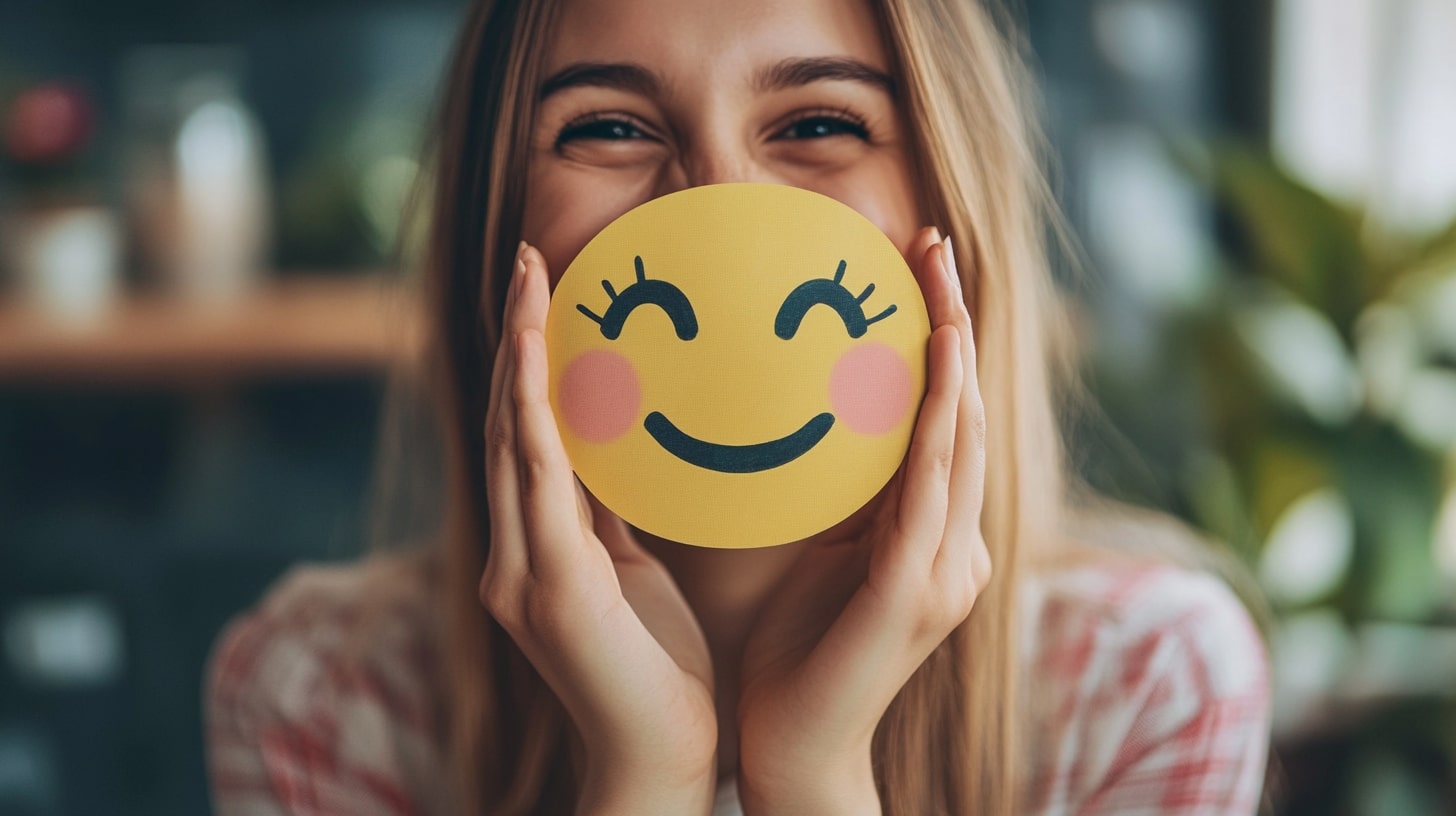Laughter is a positive boost of energy for the whole day. Humor profoundly impacts psychological health. It lifts moods and eases tension. Positive emotions spark happiness and connection. Humor triggers physiological responses that benefit the body. Your brain releases endorphins when you laugh. They are natural chemicals that promote feelings of well-being. This process reduces stress and can even lower cortisol levels. They help you feel calmer. Laughter also boosts brain function and improves memory and creativity. This happens by increasing blood flow and oxygen.
The Science of Laughter: How It Affects Your Mind and Body
Laughter is more than just a response to jokes. It’s a powerful force for the mind and body. How does it work? Let’s take a look:
- Physiological Response: Laughter triggers a cascade of bodily changes. It reduces cortisol, the stress hormone, lowers tension, and promotes relaxation. A study from the University of Maryland (2005) shows that laughter improves blood flow. It also supports heart health. It also releases endorphins, natural painkillers that enhance well-being. This chemical boost strengthens the immune system. Research from Loma Linda University (2010) links laughter to increased antibody production.
- Psychological Impact: Laughter lifts mood instantly. It activates brain regions tied to reward, like the prefrontal cortex, easing anxiety. A 2017 Journal of Behavioral Medicine study found that laughter therapy reduced depressive signs in 20% of patients. It also fosters social connections. Shared laughter builds trust and empathy. It strengthens relationships.
- Stress Relief and Resilience: Laughter acts as a buffer against stress. Research from the American Psychological Association (2019) shows it enhances resilience. It helps people cope with challenges. By reframing negative experiences, laughter promotes optimism. For example, a 2021 study in Frontiers in Psychology noted that frequent laughter lowered workplace stress by 15%.
Research shows that laughter is an effective tool for mental health. It calms the body, uplifts the mind, and binds us closer. These effects help lighten life’s burdens.
Humor as a Stress-Relief Tool in Everyday Life
Humor is a practical tool for stress relief. It helps people navigate life’s daily pressures with ease. Here’s how it’s used:
- Workplace Humor: In high-pressure jobs, humor lightens the mood. Colleagues share quick jokes or funny anecdotes during breaks to diffuse tension. For instance, a 2020 Journal of Applied Psychology study found that teams using humor reported 10% lower burnout rates. A playful email meme or lighthearted meeting quip fosters camaraderie and boosts morale.
- Social Interactions: Humor strengthens bonds and relieves stress in such settings. Friends use witty banter or funny stories to lift each other’s spirits. Shared laughter at a coffee shop or family gathering creates a sense of connection. It reduces feelings of isolation. A study in Social Neuroscience shows that laughing together syncs brain activity.
- Personal Mindset Shifts: People use humor to reframe challenges. Watching a comedy show or scrolling through funny social media posts is helpful. It significantly shifts focus from worries. Joking about a lousy day builds resilience. A 2022 Psychology Today article noted that people who laugh at setbacks recover 25% faster emotionally.
Can Humor Be a Form of Therapy?
Humor can be a powerful form of therapy. It offers unique benefits for mental health. Here’s how it’s applied:
- Laughter Therapy Overview: This method is a structured approach that therapists use. It helps to improve mental health. It involves guided exercises like laughter yoga or comedic storytelling to spark joy. According to a 2019 meta-analysis, laughter therapy reduced anxiety symptoms by 15% across 10 studies. It’s used in hospitals, clinics, and support groups to ease emotional burdens.
- Managing Anxiety: Humor helps patients reframe anxious thoughts. For example, in a 2021 case study from a UK mental health clinic, a patient with social anxiety practiced comedic role-play. This reduced their fear of judgment by 20% over six weeks, as reported in the Journal of Clinical Psychology. Laughter shifted their focus from worry to playfulness.
- Easing Depression: Humor lifts depressive moods by fostering connection. In a 2017 Australian therapy program, group comedy sessions helped patients. They let them share lighthearted stories. Participants showed a 25% drop in depression scores, per Frontiers in Psychiatry. Shared laughter built trust and hope.
How Humor Helps Build Resilience and Emotional Strength

Laughter is vital for building resilience and emotional strength. It serves as one of the most effective coping strategies during tough times. Here’s how it builds emotional strength:
- Laughter as a Coping Mechanism: Positive emotions help people navigate adversity by providing emotional release. A funny movie or joke can offer temporary relief during crises like job loss or grief. Let’s explore a 2020 Personality and Social Psychology Review study. It found that laughter reduced stress perception by 18% in challenging situations. By engaging the brain’s reward system, laughter creates a buffer. It makes hardships feel less overwhelming.
- Reshaping Negative Experiences: A humorous perspective transforms how we view setbacks. Laughter allows the reframing of adverse events. It turns frustration into opportunity. For instance, a 2022 Journal of Positive Psychology study found that people who used laughter to reinterpret failures reported 22% higher life satisfaction. For example, joking about a missed deadline shifts focus from failure to growth. It fosters optimism and mental flexibility.
- Self-Deprecating Humor’s Role: Self-deprecating laughter boosts confidence. It reduces self-doubt. Playfully acknowledging flaws, like joking about a clumsy moment, builds self-acceptance. A 2019 Humor journal study found that individuals using self-deprecating laughter had 15% lower anxiety. It also shows improved self-esteem. This approach disarms perfectionism. It makes vulnerabilities feel manageable and authentic.
Laughter is a cornerstone of resilience. It is a coping mechanism that lightens emotional loads. It also redefines challenges and strengthens confidence. Through a shared joke or a self-aware chuckle, laughter empowers individuals. It helps them face life’s trials with greater emotional strength. This helps turn pain into perspective.
Humor and Social Well-Being: Strengthening Relationships Through Laughter
Humor is a powerful catalyst for social well-being. It weaves stronger connections through shared laughter. Here’s how it enhances relationships:
- Strengthening Friendships and Romantic Relationships: Shared laughter deepens bonds in them. Friends joking over a meal or partners sharing witty banter experience heightened trust. Couples using humor reported 20% higher relationship satisfaction. A 2018 Journal of Social and Personal Relationships study found this fact. Laughter triggers oxytocin release, fostering closeness. A funny story shared during tough times reinforces support. It enhances emotional well-being in friendships.
- Workplace Dynamics and Team-Building: Humor transforms workplace environments by boosting collaboration. Lighthearted exchanges, like playful banter in meetings, ease tension and build rapport. A 2021 Organizational Behavior study showed teams with frequent humor had 15% higher productivity. Team-building activities include fun games and laughter to break down barriers. They create a culture of mutual respect and shared well-being.
- Fostering Belonging and Emotional Security: Humor creates a sense of community. It makes people feel included. Shared laughter in group settings, like at a comedy club, helps sync emotions. This is according to a 2019 Social Neuroscience study. It increases empathy by 12%. This collective joy reinforces belonging, reducing feelings of isolation. Humor also provides emotional security. Joking about shared struggles creates a safe space for vulnerabilities and strengthens group trust and individual well-being.
Humor is a cornerstone of social well-being. Through laughter, it fortifies friendships. Humor energizes workplaces and nurtures belonging. It creates moments of joy and safety. Humor connects us and uplifts our emotional lives. It makes relationships richer and more resilient.
Bringing More Laughter into Your Life: Practical Strategies
Bringing more humor into daily life is a powerful way to enhance joy. It also strengthens coping mechanisms. Here are practical strategies to make it happen:
- Incorporate Humor into Routines: Start the day with laughter. Watch a funny video or read a comic strip. Keep a humor journal to jot down amusing moments, like a quirky conversation. A 2020 Humor study found that daily comedy exposure increased happiness by 16%. Swap serious podcasts for comedic ones during commutes. It helps to spark laughter as a coping mechanism for stress.
- Simple Exercises for Stressful Moments: Use quick laughter exercises to lighten tough times. Try a “fake laugh” for 30 seconds—it often turns real, releasing endorphins. Practice playful mindfulness. Try finding humor in minor mishaps (spilled coffee as a “modern art project”). A 2021 Journal of Positive Psychology study showed such exercises cut stress by 12%. These coping mechanisms reframe challenges. They make them feel manageable.
- Encourage a Culture of Humor: Foster laughter at home, work, and socially. Share funny stories at family dinners or start meetings with a lighthearted icebreaker. Organize game nights with silly challenges, like charades. A 2019 Applied Psychology study found that humor-rich environments boosted group morale by 18%. Model playful joking about setbacks to inspire others. This approach creates a ripple effect of laughter therapy and connection.
These strategies weave laughter into life’s fabric. By incorporating these strategies, you can enhance your well-being through laughter.




